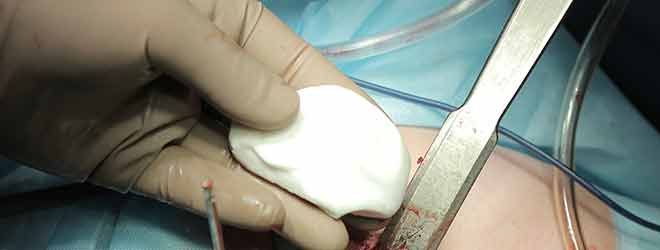 Knee replacement failures continue to be reported in connection with the use of high viscosity cement (HVC). Many times, a patient who experiences these complications will require invasive revision surgery, which can mean going through a lengthy and painful healing process. According to data published by the National Center for Biotechnology Information (NCBI), knee replacement failures are more common in procedures where HVC has been used.
Knee replacement failures continue to be reported in connection with the use of high viscosity cement (HVC). Many times, a patient who experiences these complications will require invasive revision surgery, which can mean going through a lengthy and painful healing process. According to data published by the National Center for Biotechnology Information (NCBI), knee replacement failures are more common in procedures where HVC has been used.

It is thought that these complications are caused by failure of the HVC bone cement to properly bond and hold the knee replacements in place. If you have experienced the failure of a knee replacement due to HVC, it is important to contact an experienced bone cement lawyer who may be able to file a bone cement lawsuit on your behalf.
What is High Viscosity Bone Cement?
 Bone cement is an adhesive compound used in joint replacement surgeries to anchor the artificial joint into the patient’s body. The cement is placed in the space between the prosthesis and bone, muscle, and tendon structures to help the replacement joint stay in place. There are three types of bone cement that are generally used in joint replacement surgeries.
Bone cement is an adhesive compound used in joint replacement surgeries to anchor the artificial joint into the patient’s body. The cement is placed in the space between the prosthesis and bone, muscle, and tendon structures to help the replacement joint stay in place. There are three types of bone cement that are generally used in joint replacement surgeries.
These include low viscosity, medium viscosity, and high viscosity cements. Each type is made up of a combination of powder and liquid agents that are mixed and set at the time of surgery. High viscosity bone cement has become increasingly popular due to its ability to set faster than other types of cement. This ultimately cuts down surgery time. However, serious side effects have been reported by patients who have undergone knee replacement surgeries with HVC.
Why is Bone Cement Allegedly Dangerous?
A number of serious side effects and complications have been reported in connection with the use of HVC in knee replacement surgeries. Some of the reported side effects include chronic pain, swelling, infection, loss of range of motion, and trouble walking. HVC has also been linked to poor bonding, which can lead to loosening of the joints, breakage, and early failure of the knee replacement.

Many patients who suffer these complications have to undergo invasive revision surgery to correct the problem. In some instances, amputation of the limbs has even been necessary due to the impact of the defective cement. The products currently under investigation for failure to bond and premature failure include: Cobalt HV Bone Cement (Biomet/DJO Surgical); DePuy CMW 1 Bone Cement; Simplex HV Bone Cement (Stryker/Howmedica); and SmartSet HV Bone Cement (DePuy).
Contact an Experienced Bone Cement Lawyer Today!
 If you or a loved one have suffered from complications after undergoing a total knee replacement or hip replacement with bone cement, you may be entitled to compensation for medical expenses, lost income, and pain and suffering, among other losses. We are working with experienced bone cement lawyers across the country that handle these cases. There is no legal fee unless you receive a settlement or award. For a free (no obligation) case evaluation, call our toll free number anytime at 1-800-992-6878 or fill out a contact form online.
If you or a loved one have suffered from complications after undergoing a total knee replacement or hip replacement with bone cement, you may be entitled to compensation for medical expenses, lost income, and pain and suffering, among other losses. We are working with experienced bone cement lawyers across the country that handle these cases. There is no legal fee unless you receive a settlement or award. For a free (no obligation) case evaluation, call our toll free number anytime at 1-800-992-6878 or fill out a contact form online.


